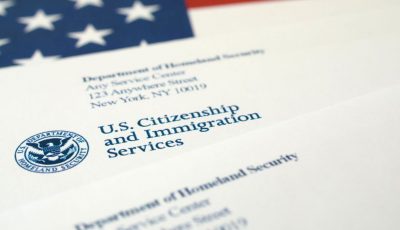AS LAWSUIT OVER DENIAL OF PETITION FOR NATURALIZATION SETTLED
Judge Manglona puts businessman’s lawsuit on hold
The federal court has issued an order that temporarily suspended the lawsuit filed by Korean businessman Ho Jin Yoon against U.S. Department of Homeland Security Secretary Jeh C. Johnson and other U.S. Citizenship and Immigration Services officials over the denial of his petition for naturalization.
U.S. District Court for the NMI Chief Judge Ramona V. Manglona issued the order holding Yoon’s lawsuit in abeyance pursuant to the parties’ settlement agreement.
Manglona said the court will temporarily place the case on hold pending dismissal of the lawsuit, or an application to enforce the terms of the parties’ settlement deal.
The judge gave the parties 180 days from this order to file a joint status report, notifying the court of the progress of execution of the terms of the settlement agreement if they have not stipulated to dismissal of the case by that time.
In their stipulation filed in court on Saturday, Yoon and defendants DHS Secretary Johnson, U.S. Attorney General Loretta E. Lynch, USCIS Director Leon Rodriguez, and USCIS CNMI/Guam Field Office District Director Stephen Green, notified the court that the parties have agreed to settle the case.
Yoon and the defendants, through their respective lawyers Janet H. King and Office of Immigration Litigation assistant director Glenn M. Girdharry, requested the court to hold the matter in abeyance pending execution of the terms of their settlement deal.
King and Girdharry disclosed that the agreement calls for each party to take administrative steps that will lead toward defendants re-filing Form I-90, which is the application to replace permanent resident card.
The lawyers said if USCIS favorably adjudicates Yoon’s I-90 application, USCIS will issue him a new I-551 card, or the permanent resident card (“green card”).
The parties’ settlement agreement requires them to stipulate to dismissal of Yoon’s lawsuit within 30 days of USCIS issuing a decision on his I-90 application.
Recently, the parties requested the court to extend the defendants’ deadline to answer Yoon’s complaint by an additional 14 days.
The parties said they made the joint request because they have been diligently working to execute a settlement agreement.
Yoon has lost his U.S. permanent resident status.
In his petition for judicial review, Yoon asked the court to conduct a hearing on his naturalization application, grant him application for naturalization, and hold unlawful and set aside defendants’ denial of his application for naturalization, and grant him U.S. citizenship.
Yoon was granted U.S. permanent resident status on Dec. 6, 1988 in Los Angeles, California. Sometime after he was granted his U.S. permanent resident status, he moved to Saipan, which at that time was not a part of the U.S. for immigration purposes.
According to King, on Sept. 10, 2002, Yoon was deferred for inspection at the Guam International Airport and was questioned about his time outside the U.S. in excess of one year.
At the Guam airport, King said, Yoon was offered the option to either appear before an immigration judge or to sign Form I-407, Record of Abandonment of Lawful Resident Status.
Plaintiff opted to sign Form I-407.
King said that, on July 10, 2014, the USCIS denied Yoon’s Form N-400, Application for Naturalization.
The lawyer said the denial was based on Yoon’s voluntary surrender of his permanent resident status by signing on Sept. 10, 2002 Form I-407, Record of Abandonment of Lawful Permanent Resident Status, before an immigration officer at the Guam airport.
Yoon timely appealed to the USCIS a Form N-336, request for a hearing on a decision in naturalization proceeding.
In June 2015, the USCIS affirmed its decision denying Yoon’s naturalization application.



























